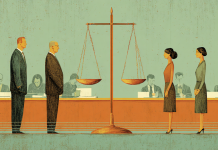Fuente: Harvard Law School Forum on Corporate Governance
Autores: Adam O. Emmerich, Wachtell, Lipton, Rosen & Katz
War in Ukraine: Is ESG at a Crossroads?
As the world reels from Russia’s assault on Ukraine, whither ESG? Western companies have taken unprecedented steps to exit their interests in Russia. Those who have hesitated have faced significant public pressure to take action and have been hit with severe reputational costs. Meanwhile, the spike in global energy prices has led some to speculate whether climate change priorities should take a back seat to the need to address immediate energy shortages and supply dependencies.
While the full economic and political repercussions from the past three weeks continue to unfold, there are some immediate lessons for boards and management:
1. Value and values can and do intersect.
While ESG investing is fundamentally about generating long-term financial value and protecting against downside risks to value, the past few weeks have prompted unprecedented support for the liberal international order, the rule of law, democracy and human rights. The global reaction to Russia’s war in Ukraine has become a key test of whether companies are living up to their proclaimed purpose and values—including the implicit expectation that they will respect and seek to uphold the norms that have allowed free enterprise to flourish. As we have increasingly seen in recent years, in moments of global and national crisis or controversy, large public companies, particularly household names, do not have the option to sit on the sidelines. Stakeholders are keeping score via social media and leaving a long digital trail, as demonstrated by Yale professor Jeffrey Sonnenfeld’s list of corporate activity in Russia.
2. Black swan events in a globalized world will amplify risks to new heights and may demand a new risk management playbook.
Russia’s invasion of Ukraine is the second major unexpected global shock in as many years, alongside inflationary-related pressures. As already illustrated by the Covid-19 pandemic, today’s flat digital economy means that high-impact events will inevitably have global ramifications. In the weeks following Russia’s invasion, we have seen the tightening of global supply chains, with countries facing wheat and oil shortages, shortages in minerals and commodities, a halt to Black Sea shipping, and the stranding of a significant portion of global air freight capacity in Russia. Like the Covid-19 pandemic, early detection and a quick response has proven critical in mitigating losses. The events of the past three weeks are a unique reminder for companies to re-evaluate the resilience of their risk management strategy and their ability to respond to emerging risks.
3. Geopolitical risks are roaring back.
The relative peace of the post-Cold War era and the unprecedented expansion in global trade in recent decades have masked the growing geopolitical tensions that have emerged in recent years. The rise of populist and autocratic regimes across the globe and growing competition for resources, technology and talent will continue to test the risk appetite of Western companies seeking opportunities abroad. The sheer number of Western companies that have exited or suspended operations in Russia underscores the fact that there may not be safety in numbers. Companies need to weigh the risks of being caught in the crossfire of geopolitical tensions in addition to the risk of operating in countries where weak rule of law, human rights abuses and autocratic governments impose a de facto financial and reputational tax on doing business. As war in Ukraine redraws the geopolitical landscape in Europe and threatens to erect new barriers between the West and the rest, companies need to carefully consider the risks of all of their global activities.
4. ESG has and will continue to evolve.
In the last few days, many have decried the inconsistencies in ESG investing, noting in particular whether carbon reduction initiatives in Europe are inconsistent with correcting a perilous reliance on Russian oil and gas and whether U.S. (and other global) energy companies should be doing more—and given the capital and license to do more—to address energy shortfalls while responsibly navigating the energy transition. However, it is premature to proclaim that the end of ESG is nigh. ESG investing has evolved, from exclusionary screens to today’s increasingly sophisticated use of data and proprietary modeling that continue to capture new risks and opportunities. The war in Ukraine provides another series of important lessons and data points and underscores the need for a non-disruptive transition to a low carbon world—a view already shared by major investors.
5. The focus for ESG is still on delivering long-term value.
While Ukraine has captured global headlines, we have also been reminded by the latest UN IPCC report that climate change, if unaddressed, will trigger a humanitarian crisis on an unprecedented scale and lead to trillions of dollars in losses. From an ESG perspective, a company’s performance is still being measured in returns delivered over decades and not days. As such, the immediate actions necessary to mitigate losses from catastrophic events, including the war in Ukraine and the Covid-19 pandemic, should be distinguished from the steps that are necessary to preserve a company’s long-term value.
It is difficult if not impossible today to predict the course of either the ongoing Covid-19 pandemic or the war in Ukraine, or to identify the next global or regional crisis that will impact our companies, markets and society. Having robust and resilient risk management teams and processes, including scenario planning and exercises that inform adjustments to corporate strategies and capital expenditures, with committed leadership from boards and senior management, provides a critical bulwark against the constancy of change.












